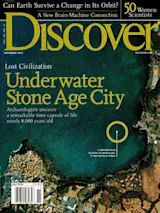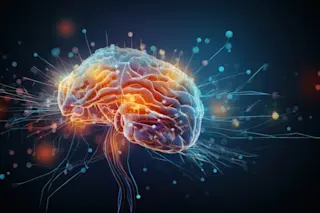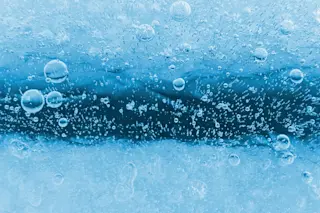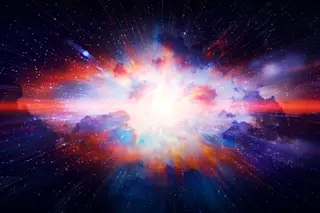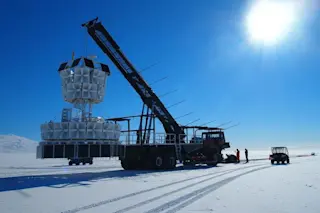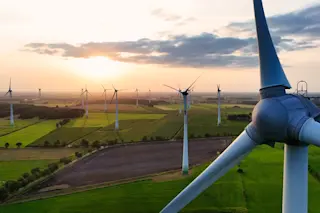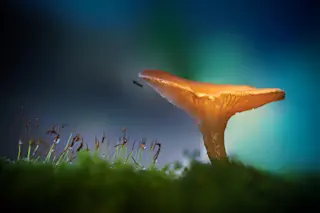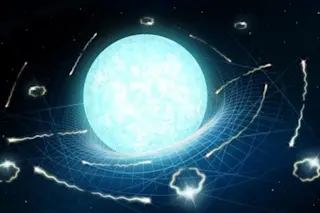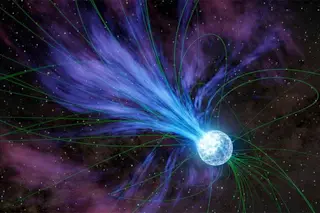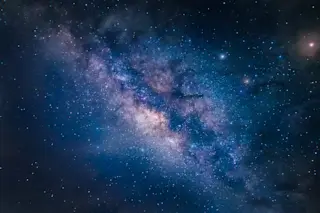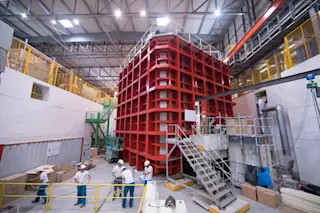Nearly a century ago, Albert Einstein suggested that light could be thought of as a gas, its photons jostling like water molecules in steam. Humberto Michinel, a physicist at the University of Vigo in Orense, Spain, has taken the idea a step further, working out a way to condense photons into drops of liquid light. He and his colleagues modeled what happens when a laser beam passes through a peculiar material called a cubic-quintic nonlinear medium. Such materials slow down any passing light—the stronger the beam, the greater the slowing—and focus it into a thin column.
Simulations (above) show that a gigawatt laser could condense the photons in the beam into droplets, each about 1/500 of an inch across. Drops of liquid light—an entirely new form of matter—would have many of the properties of liquid water, including surface tension. "They could also form into eddies—whirlpools of light," Michinel says. Sprinkles of light might someday transport data in an optical computer: "You could make two liquid droplets collide, like billiard balls, to make a logic gate that switches a bit from a 0 to a 1," Michinel says. But first he needs to create actual liquid light in the lab, which could take a year or two.

Photographs courtesy of Humberto Michinel (6).


